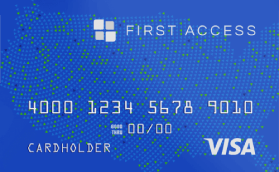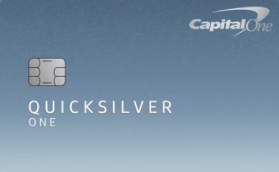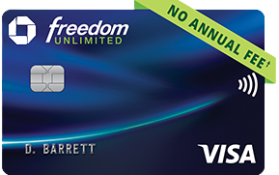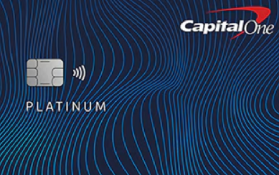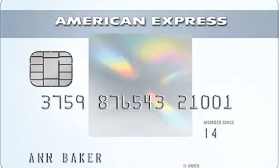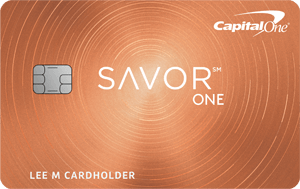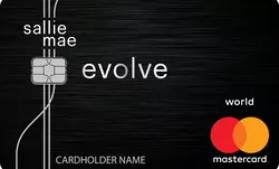Short Review of Best Credit Cards for College Graduates
| Name | Best for | Rewards Rate | APR | Apply |
|---|
| Low income | 1% Earn 1% cash back rewards on payments made to your First Access Credit Card. | 35.99% | Apply now On the First Access Visa® Card secure website |
First Progress Platinum Prestige Mastercard® Secured Credit Card | | 1% Cash Back rewards on payments. | 14.24% Variable | Apply now On First Progress’s site |
Capital One QuicksilverOne Cash Rewards Credit Card | Fair credit | 1.5% Cash Back on every purchase. | 29.99% Variable | Learn more |
| Cash Back, 0 APR, No Annual Fee, Daily use | 5% Cash Back on travel purchased through Chase Ultimate Rewards.3% Cash back on dining at restaurants, including takeout and eligible delivery services.3% Cash Back on drugstore purchases.1.5% Cash Back on all other purchases. | 18.99% - 28.49% Variable | Learn more |
Chase Sapphire Preferred® | Travel, Restaurants, Daily use | $50 Earn up to $50 in statement credits each account anniversary year for hotel stays purchased through Chase Ultimate Rewards®.5x Points on travel purchased through Chase Ultimate Rewards®, excluding hotel purchases that qualify for the $50 Anniversary Hotel Credit.3x Points on dining, including eligible delivery services, takeout and dining out.3x Points on online grocery purchases (excluding Target, Walmart and wholesale clubs).3x Points on select streaming services.2x Points on other travel purchases.1x Point per dollar spent on all other purchases. | 19.99% - 28.24% Variable | Learn more |
Capital One Platinum Secured Credit Card | Single mom, Without SSN | This card doesn't offer cash back, miles or points. | 29.99% Variable | Learn more |
American Express® EveryDay® | Honeymoon | 20% Use your Card 20 or more times on purchases in a billing period and earn 20% more points on those purchases less returns and credits.2x Points at U.S. supermarkets, on up to $6,000 per year in purchases, then 1x.1x Points on other purchases. | 18.24% - 29.24% Variable | Learn more |
Capital One SavorOne Cash Rewards Credit Card | Cash Back, 0 APR, No Annual Fee, Restaurants, Entertainment, Daily use | 5% Cash Back on hotels and rental cars booked through Capital One Travel.1% Cash Back on all other purchases.3% Cash Back on dining, entertainment, popular streaming services and at grocery stores. | 19.99% - 29.99% Variable | Learn more |
Who should apply for?
Capital One QuicksilverOne Cash Rewards Credit Card
The Capital One QuicksilverOne Cash Rewards Credit Card is a great starter card if you want to build your credit. Use it responsibly, and you’ll be automatically considered for a higher credit limit in as little as six months. You can monitor your credit profile for free with the CreditWise app and get customized alerts via the Capital One app to help you manage your account.
Read more about Capital One QuicksilverOne Cash Rewards Credit Card
Chase Freedom Unlimited®
The Chase Freedom Unlimited® is a card designed for those who want an all-purpose cash back card with a good bonus offer. If you’re a frequent Lyft user, you’ll do particularly well in the rewards category, and if you travel frequently, you’ll have access to valuable travel protections and insurances. If you want to maximize your rewards, you can transfer them to other Chase Ultimate Rewards credit cards.
Read more about Chase Freedom Unlimited®
Chase Sapphire Preferred®
If you travel and dine out frequently, the Chase Sapphire Preferred® Card might be a good fit for you. It’s a great first travel card and enables cardholders to stretch rewards points with travel redemptions. Although it comes with a $95 annual fee, you can get that $50 Anniversary Hotel Credit and make the rest up with the generous rewards structure in practically no time.
Read more about Chase Sapphire Preferred®
Capital One Platinum Secured Credit Card
Although the Capital One Platinum Secured Mastercard® doesn’t offer a rewards program, it features a possibility of a lower security deposit, reasonable fees, and an easy way to get a higher credit line, which makes it a good card for those looking to build credit or who have made some credit mistakes in the past.
Read more about Capital One Platinum Secured Credit Card
American Express® EveryDay®
If you use your card a lot — and spend a lot on groceries — this could be the card for you. It’s a no-annual-fee card that earns a nice rewards rate, and you can transfer your points to American Express airline partners to get the most out of them.
Read more about American Express® EveryDay®
Capital One SavorOne Cash Rewards Credit Card
Foodies would be a good match for the card because the Capital One SavorOne Cash Rewards gives 3% cash back on dining and grocery stores. It’s also a good choice for those who like to travel, thanks to its no foreign transaction fees, travel accident insurance, and 24/7 travel assistance services.
Read more about Capital One SavorOne Cash Rewards Credit Card
How to choose the right credit card after graduation?
Recent grads should keep in mind that there is no “one” best credit card. There’s simply the one best for you. So, when making a decision, consider essential features for you, interest rates, and rewards programs.
Before you apply for a credit card, there are a few steps you should take. First, check your credit score to figure out which cards make the most sense for you to apply for. If it’s high, you’ll likely be able to qualify for offers from the top cards with the best rewards. On the flip side, if your score is low, your choices will be more limited. You can check your credit score for free every 12 months at AnnualCreditReport.com.
Next, decide which types of rewards you want to earn. Is cash back most important to you? Airline or hotel points? Or flexible rewards points? Once you figure out what you want, it will narrow your options. Also, look for the perks you need most, such as travel protection, extended warranties, no foreign transaction fees, rental car coverage, etc.
Because many graduating college students haven’t found jobs yet, it’s always a good idea to look for a card with no annual fee. There are plenty of them out there, so it shouldn’t be hard to find one. If you go for a card that charges an annual fee, decide if the rewards and benefits are worth paying for.
What should you do with your student credit card after graduation?
New graduates might already have student credit cards when they finish college, and there’s no reason to get rid of them. In fact, keeping your oldest student credit card can help raise your credit score because the length of credit history counts for 15% of your FICO score. Consider putting a recurring monthly bill on it so that it still contributes to your credit score.
You can always ask your issuer to upgrade your student card to something more appropriate for post-grads. And if you like the card, choosing one after college might be as easy as getting it reclassified by the issuer, so it’s no longer considered a student card. Keep in mind that once you start a job, you can always ask the issuer to increase your credit limit or lower your APR (assuming you’ve always paid on time).
Should you get a student card if you are about to graduate?
Student card issuers typically ask for verification that you are indeed enrolled in college, so if you’re about to graduate, it’s not a great time to sign up for one. That said, the Journey Student Credit Card Capital One is unusual as it does not require proof of enrollment, so you can consider applying for this card if you really like it.
How can recent graduates use credit cards responsibly?
College graduates, just like all adults, must learn to use their credit cards responsibly. The best advice for anyone with a credit card is to pay off the balance each month, which will enable you to avoid paying interest and keep your credit score where you want it. In addition, creating a budget and sticking to it will likely allow you to make those payments easily. If you can’t pay off the balance, make sure you send in the minimum payment on time.
Use your card for things that you really need, not just want. Purchase items you would buy even if you didn’t have a credit card — think groceries, gas, restaurants. And, when you make purchases, think about how they will affect your rewards.

For example, if you have a card that rewards you more for groceries or gas, make sure you use it for those purchases.
Never spend to the point where you’re close to your card’s limit because it will increase your credit utilization. Credit utilization is how much you owe compared to your limit. The general rule of thumb is to keep it at 30% or below.
Which credit card offers the best rewards for recent graduates?
Of all the cards we reviewed, Chase Freedom Unlimited® offers the best rewards for recent grads.
The current offer includes a $200 bonus when you spend $500 on the card during your first three months of having the card, plus you’ll earn 5% cash back on grocery store purchases (excluding Target and Walmart) for up to $12,000 during the first year.
You’ll also earn 5% cash back on travel purchased through Chase, 3% on dining (including takeout) and drugstores, and 1.5% on all other purchases. Your cash back rewards won’t expire, and there is no minimum amount required to redeem them.
Partner benefits include three free months of DashPass, DoorDash's subscription service ( must activate by Dec. 31, 2021), and 5% cash back on Lyft rides through March 2022.

The Chase Freedom Unlimited® comes without an annual fee, plus a 0% intro APR for 15 months on purchases and balance transfers. After that, you’ll pay a variable APR of 18.99% - 28.49%.
This card also comes with many built-in benefits, including zero liability, extended warranty and purchase protection, trip cancellation/interruption insurance; fraud protection and alerts; and auto rental collision waiver.
Another excellent feature for recent grads is access to Chase’s Credit Journey, a program that gives you insights to help you manage your credit. You can get your credit score for free and utilize other resources, such as score simulator and score factor breakdown, to help you understand your credit health.
FAQ
What are other credit cards to consider?
Because many college graduates are just beginning to build their credit, they may not qualify for premium cards. New grads typically have better odds of being approved for the cards on our list, plus some others: Citi Simplicity® Card, and Bank of America Cash Rewards for Students.
Can you apply for a credit card if you are unemployed?
The short answer is yes; new graduates can get approved for a card even if they haven’t found a job yet. Because credit card issuers consider your overall capability to pay your debts, you can include money you might have besides actual income on your application. This might be an allowance, a legal settlement, scholarships and grants, or a trust fund distribution.
What is the best credit card for a college student with no credit?
College students with no credit might find their choices limited. But there are several secured cards they can get approved for with no credit at all. Secured cards require you to deposit money with the issuer to open an account. That money acts as a security deposit, which is often refundable. Once you build your credit with
a secured card, it should be easy to open a traditional,
unsecured one.
Which is the best overall credit card for recent college graduates?
The best overall credit card for college graduates is the one that best fits their needs and one that they can reasonably expect to be approved for. Because everyone’s situation is different, it’s simply not a “one card fits all” situation.
Once you find the card that’s right for you, you can continue to build your credit and later, considering your financial situation and needs, apply for cards usually reserved for those with higher credit. Meanwhile, you’ll be on your way to getting better rates not just on credit cards but also on mortgages and other types of
loans.
